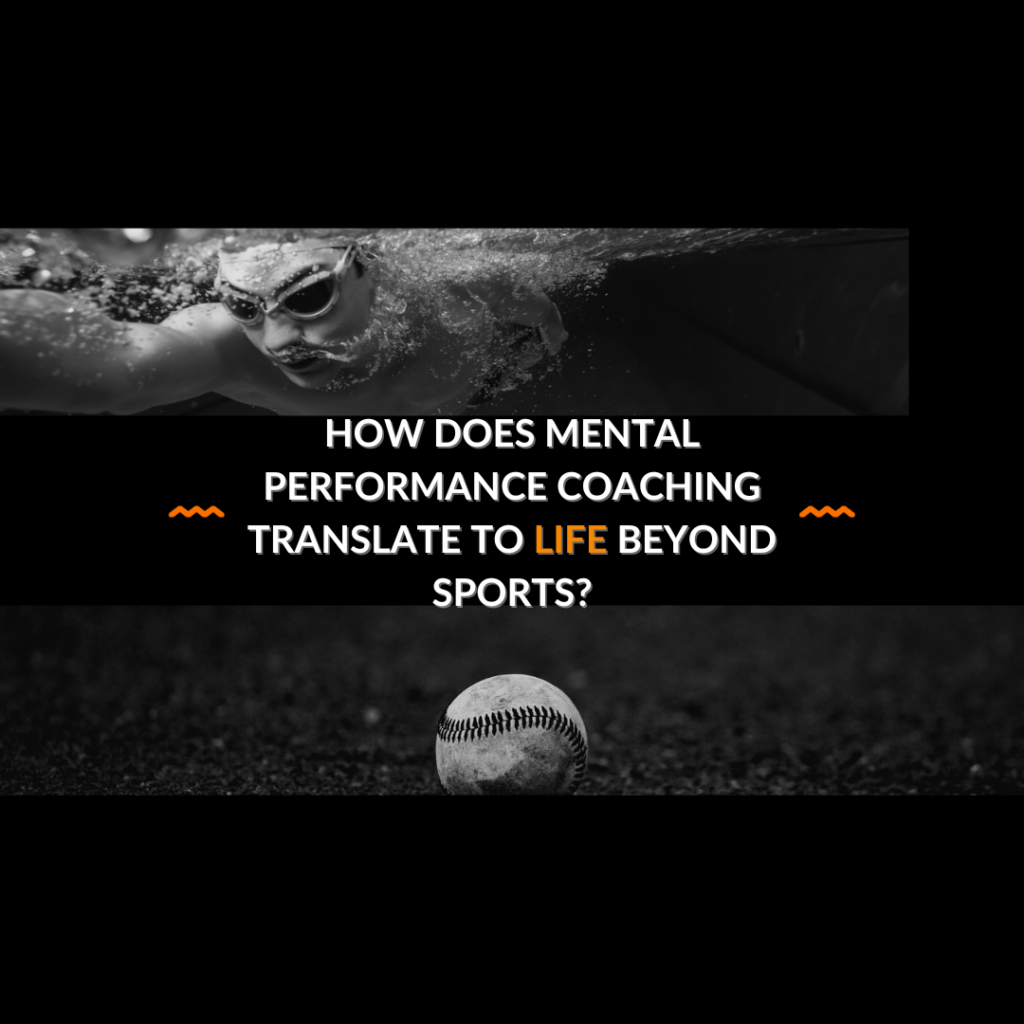I primarily serve young athletes as a mental performance coach. However, mental performance coaches work with all types of performers: adult athletes, elite pros. first responders, and performing artists (I am working with an opera singer!). The list goes on.
Yes, mental performance coaching translates to all areas of performance. I had an experience in the past 48 hours that reminded me of the impact my work can have outside of sports.
I have worked with a female high school basketball player for about a year now. She’s a pleasure as a client. She’s motivated, smart, and mature beyond her years. She’s also sensitive, introspective, and has high expectations for herself. She is a high achiever by my definition (and likely anyone else’s).
When we started working together, she was 17 years old and focused on playing college basketball. One year later, she is an 18-year-old senior who decided she no longer wants to play college basketball.
Today, she’s playing her final season as a high school basketball player. She was a four-year varsity player, who invested herself into the original goal of playing college basketball. Deciding to forego college basketball has not lessened her desire for success in her final season.
Her choice not to pursue college basketball was hers alone. She was actively being recruited, mostly by Division III schools, but her academic prowess outstrips her athletic prowess. She decided not to play college basketball because she didn’t want to settle academically because of basketball. Frankly, I thought it was a very mature decision.
She is applying to some of the most prestigious colleges in America. The Ivy’s. Stanford. Notre Dame. She wants to study neuroscience, minor in bioengineering, and become a neurosurgeon one day. Like I said, she’s a high achiever. And, like many high achievers, she’s got some overthinker and some perfectionist in her. These traits have challenged her not only on the basketball court but also in social situations.
What I’ve loved about working with her over the past year is that we didn’t always talk about basketball. We discussed academics, relationships, her faith, and her to serve others. She is a unique young person.
Her senior basketball season has been a struggle. She started optimistic about it. However, she has a new coach, and team chemistry isn’t great. She has struggled since I met her managing the relationships on her basketball team. Understanding and communicating with others whose motivation and values don’t align with her have made her basketball experience difficult.
She was frustrated during our most recent mental performance coaching session two days ago. I observed that she was experiencing discomfort. She was quiet. She looked troubled. She didn’t seem like herself.
On the surface, she explained that basketball was the cause of her discomfort. She felt out of control. Her role was changing as a new transfer player was negatively impacting team chemistry in her eyes.
She didn’t say it to me, but I guessed she wished the season was over. I was right. Her motivation was waning. She’s not playing in college. Her last high school season is causing her distress. What’s the point anyway?
We talked about the consequences of “mailing it in” the rest of the way. What will it feel like to go through the motions in the last month of your final season of competitive basketball?
I’m pretty good at reading people. It’s a critical skill in my work. I could tell she didn’t want to talk about this stuff anymore. She was shutting down, so I tried to shift the conversation.
She shared that she had a college admission interview later the same evening. She is applying to Princeton University among many prestigious colleges. I redirected our conversation to that important topic.
I shared that I hoped that she would not allow her basketball struggles to seep into the interview. So, we talked about how to do that. I gave a little more pep talk than normal, but I feel like it would help lift her spirits to engage in the conversation.
I suggested that she wouldn’t even have an interview if she wasn’t qualified to be considered for Princeton.
I shared that no matter what she says in that interview there is no guarantee that the interviewer will like her answers. Controlling the controllables is mental skills 101.
We then dove into identity. Who is she as a person and why does she want to attend Princeton?
Her mission aligns with Princeton’s mission. She wants to serve the greater good as a neurosurgeon. Princeton seeks this quality in prospective students. She learned this by reading the university’s mission statement.
She wants to live in a vibrant learning community but doesn’t want to live in a city. I vouched for Princeton in this respect having spent a bit of time there.
Finally, she wants to add value to the Princeton community and not just be admitted as an achievement.
After we talked through her purpose and motivation, I shared this:
“I think you are going to kill it, whatever that means. Does that help?”
She smiled (finally) and said, “Yes, it does. It differently helps to hear a different perspective.”
As our conversation wrapped up, she shared that her mother was nitpicking about her facial expressions. Her mom even said, “You blink a lot.” Her mom is trying to help believing that such imperfections could impact the quality of the interview. However, I offered a different perspective again.
I said, if Princeton chooses not to accept you because you because you blink a lot, then it might not be the place for you (she laughed).
My ultimate suggestion was to be herself and nothing can go wrong.
I received a message just as I was getting ready for bed seven hours later. I responded. That exchange is below.


